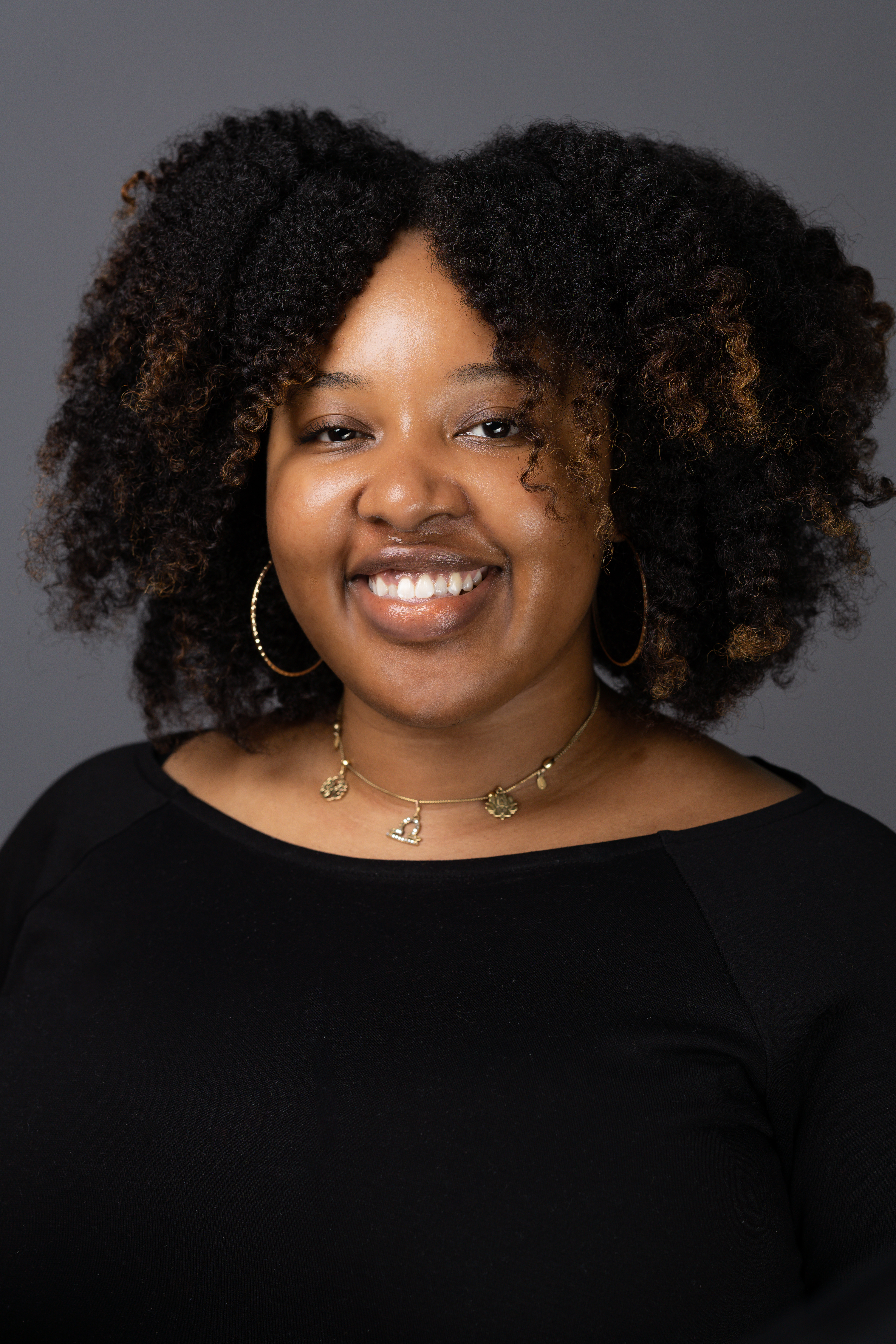Simone Sawyer, a doctoral student in Milken Institute School of Public Health’s Department of Prevention and Community Health, was selected for The George Washington University chapter of the Edward Alexander Bouchet Graduate Honor Society. Named for the first self-identified African American to earn a doctorate from an American university, the society was chartered jointly by Yale and Howard universities in 2005 to recognize outstanding scholarly achievement and promote diversity and excellence in doctoral education and the professoriate.
After being inducted at GW in March 2023, Sawyer attended a national conference at Yale in April, where she had the opportunity to network with other scholars and attend research presentations. The society and the conference strive to foster a supportive environment for students who have been traditionally underrepresented in the academy.
“My advisors, Dr. Deanna Kerrigan and Dr. Olga Acosta Price, nominated me. They believed it would be a great opportunity to highlight the work that I’m doing. Sawyer explains. “I do translational community research, which looks to understand the processes and implementation factors that impact how public health programs can benefit the populations it’s intended to serve. It’s not the linear medical model that most people are used to.” When it comes to public health interventions, Sawyer notes that, “we may have lots of strong evidence and knowledge, but if it’s not reaching people who need it most, then we’re doing all this great work for nothing. We need to work with partners outside of academia to help people feel part of the process and better understand why they may or may not engage with certain health innovations and systems.”
Sawyer’s dissertation research is focused on exploring and describing different pathways for youth-driven public health policy and practice change in DC. “I work for the Center for Health and Health Care and Schools, coordinating with young people, the Department of Behavioral Health, parents and community-based organizations to increase access to mental health services and programs in schools and communities.”
“For example, the mayor of DC provided funds and mandated that each public school in the district hire an additional counselor from community-based organizations to join school wellness teams. This is a good evidence-based practice but most youth don’t even know this mandate exists or what services and programs are available to them. Since this is the case, what do evidence-based practices and policies mean practically for young people in schools needing mental health and wellness services and programs? Through our work, one really cool idea youth put forward to tackle this implementation issue was to create virtual wellness centers for their schools. ‘If clinicians tell us what services and programs they offer,’ they said, ‘we will create virtual wellness centers that we can put on our school websites and social media to ensure youth know what’s available to them.’ Such a good, simple, innovative and youth-driven idea.
“We got a little pushback or what I like to call healthy tensions, with some of the decision makers because they were worried about the potential for young people to start self-diagnosing themselves with so many online resources. But one thing young people illuminated to us throughout the process is that they’re going to be on the internet anyway, whether we like it or not. So it’s better to partner with them and try to help them understand which health information is accurate versus not instead of dismissing the entire idea overall.” “Youth-driven ideas can be scaled for greater public health policy and practice change but more nuanced understandings of how partnerships can be formed and how power can be shared and shifted is needed. That’s what my dissertation will explore and understand”
Sawyer values the opportunity to be part of the Bouchet Graduate Honor Society. “I’m grateful that GW is part of efforts to celebrate those who aren’t often represented in the academy,” she concludes. “It feels nice to be affirmed and have a diverse network because unfortunately there still aren’t many people at GW Milken Institute School of Public Health who look like me in PhD programs and/or are engaged in this kind of research. The Bouchet Graduate Honor Society lets me know that GW is doing the practical work to make sure I feel seen in ways that I might not have—nor my ancestors might have—in the past.”


